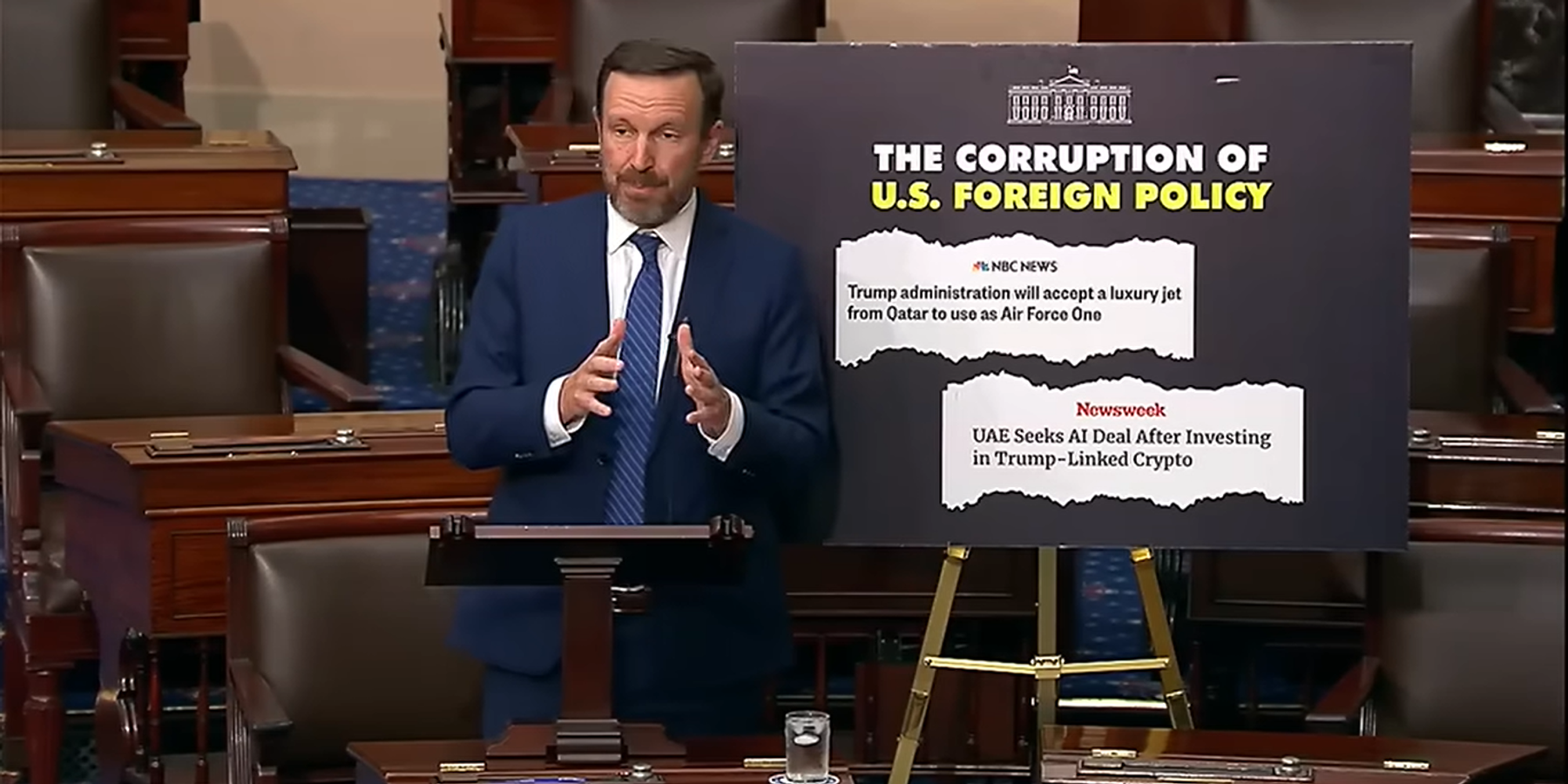UPDATE: S.J. Resolution 54 did not pass a vote in the Senate Wednesday, with 39 voting Yea and 56 voting Nay.
Democratic senators are targeting the United Arab Emirates’ (UAE) controversial support of the Rapid Support Forces (RSF) in Sudan’s civil war, through myriad resolutions also aiming to undermine what they call Trump’s use of “foreign policy [as] a machine to enrich himself.”
Senators Chris Murphy (D-Conn.), Tim Kaine, (D-Va.), Chris Van Hollen (D-Md.), Bernie Sanders (D.-Vt.) and Brian Schatz (D-Hawaii) aim to block weapons sales to the UAE with Joint Resolutions of Disapproval (JRD) S.J.Res.51, S.J.Res.52, and S.J.Res.54. The senators have forced a vote on Resolution 54, expected to take place as soon as later today.
Sen. Murphy has said the resolutions are an effort to block arms deals to countries he alleges “take part in Trump's corruption,” citing the UAE’s $2 billion investment in a Trump family crypto project. Another resolution introduced in tandem would block arms sales to Qatar, he said, over its recent move to give the U.S. a luxury jet, intended for use as Trump’s Air Force One.
But JRDs 51, 52, and 54 would also seek to undermine the UAE’s support of the RSF, a paramilitary group at the heart of Sudan’s raging civil war that began in 2023, which the Biden administration State Department asserted was committing genocide in January. Specifically, the resolutions would cut off sales of weapons to the UAE that could subsequently be provided to the group. To date, the war has killed over 150,000 people and left over 30 million in need of humanitarian aid.
“The UAE is the main supplier of weapons to the worst of the two parties that are involved in the brutal, catastrophic, deadly civil war in Sudan,” Murphy explained on the Senate floor on Monday. "They want the United States to keep giving them weapons, most recently asking for a resupply of Chinook helicopters, even as they use their military prowess to destroy Sudan."
The UAE insists on its neutrality in the war. But many investigations, including a U.N. panel linking the UAE to weapons found in Darfur, suggest the UAE’s supported RSF with weapons and other material support. Citing such support, 30+ humanitarian organizations voiced support for the JRD in a joint letter published Monday.
“Independent investigations by human rights organizations, journalists, and a UN panel have concluded that the United Arab Emirates has provided weapons and other support to the RSF…Much of that support violates the United Nations Security Council’s Darfur arms embargo in place since 2005,” the letter read. “Investigations by leading human rights organizations have additionally concluded that the RSF has engaged in widespread war crimes and other atrocities, including extensive sexual violence.”.
The letter continued, “Civilians in Sudan have endured unimaginable suffering in a war marked by extensive abuses, which have been fueled by flows of weapons into the country.”
“Congress has paid too little attention to the role of outside actors in fueling atrocities committed by the Rapid Support Forces,” John Ramming Chappell, advocacy and legal adviser at Center for Civilians in Conflict (CIVIC), told Responsible Statecraft. “Senators should take the chance to vote for this resolution and send a clear message to the Emirati government: stop arming the RSF, or face consequences for the US-UAE relationship.”
The resolutions are unlikely to pass.
Editor's note: The reporting has been clarified to reflect that JRDs 51 and 52 have yet to be brought to be voted upon.
















